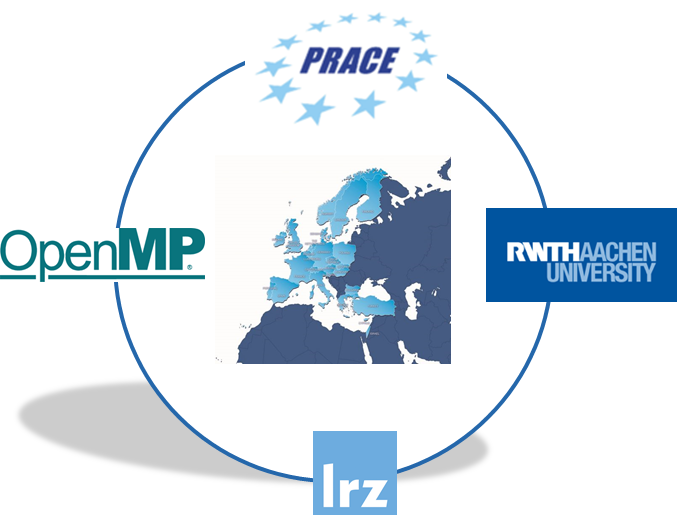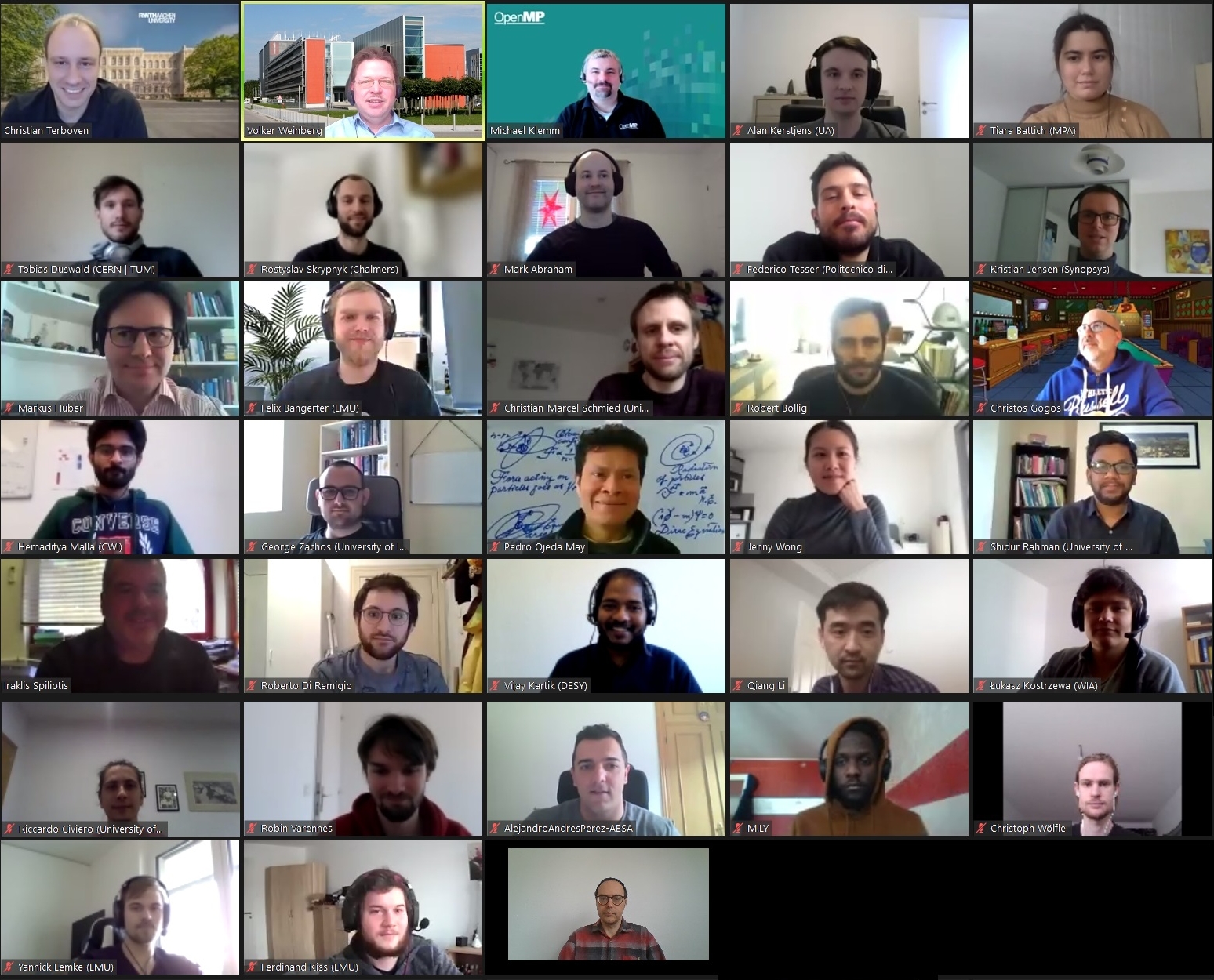PRACE Course: OpenMP Programming Workshop 2021
With the increasing prevalence of multicore processors, shared-memory programming models are essential. OpenMP is a popular, portable, widely supported, and easy-to-use shared-memory model.
Since its advent in 1997, the OpenMP programming model has proved to be a key driver behind parallel programming for shared-memory architectures. Its powerful and flexible programming model has allowed researchers from various domains to enable parallelism in their applications. Over the more than two decades of its existence, OpenMP has tracked the evolution of hardware and the complexities of software to ensure that it stays as relevant to today’s high performance computing community as it was in 1997.
This workshop will cover a wide range of topics, reaching from the basics of OpenMP programming using the "OpenMP Common Core" to really advanced topics. During each day lectures will be mixed with hands-on sessions.
Workshop Participants 2021 © LRZ 2021
Tentative Agenda
Day 1 | Day 2 | Day 3 | |
09:00-10:30 CET | Tasking 1
| GPUs
| |
10:45-12:15 CET | Tasking 2
| Tools for Perf. and Correctness
| |
13:00-14:45 CET | Introduction to OpenMP | Host Perf.: SIMD
| Misc. OpenMP 5.0 Features
|
15:00-16:00 CET | Hands-on: Introduction to OpenMP | Host Perf.: NUMA
| Roadmap / Outlook
End: approx. 16:30 CET |
Lecturers
Dr.-Ing. Michael Klemm (OpenMP ARB, AMD), Dr. Christian Terboven (RWTH Aachen University)
Slides
Day 1
Day 2
Day 3
Exercises
See https://github.com/cterboven/OpenMP-tutorial-PRACE
Survey
Please fill out the PRACE online survey under https://tinyurl.com/omp-workshop-survey
This helps us and PRACE to
- increase the quality of the courses,
- design the future training programme at LRZ and in Europe according to your needs and wishes,
- get future funding for training events,
- shape the future system architecture at LRZ.






